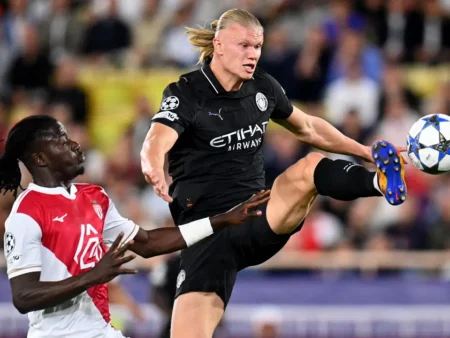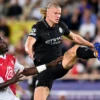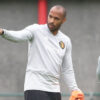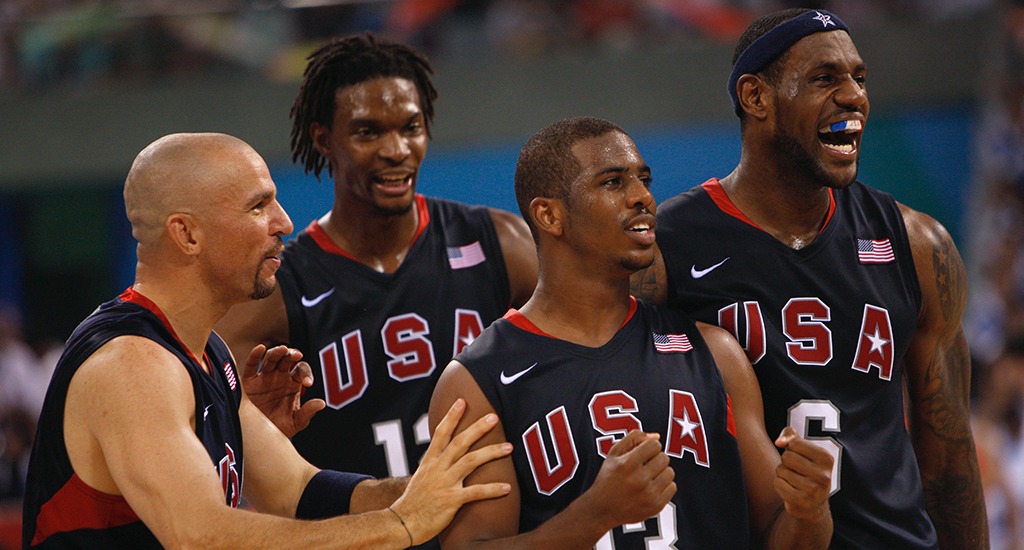
The indelible image associated with the 2008 “Redeem Team” is rightfully Kobe Bryant`s iconic “shush” gesture. Following a critical three-pointer, with a foul called in a pivotal moment of the gold medal game, his defiant pose dripped with symbolism. Kobe wasn`t truly asking for quiet in Beijing`s Wukesong Arena—his fervent Chinese fans were already roaring. Instead, he aimed to silence the notion that American basketball no longer reigned supreme on the global stage.
This legendary replay will be a highlight this weekend in Springfield, Massachusetts, as the 2008 U.S. men`s Olympic team is formally inducted into the Naismith Memorial Basketball Hall of Fame. Bryant`s 13 fourth-quarter points that day, especially his game-changing four-point play that pierced Spain`s hopes, are foundational to the team`s mythology.
The palpable sense of redemption defined that summer. Team USA had been relegated to bronze at the 2004 Athens Olympics, followed by four years of suffocating shame. It was also a redemptive moment for Bryant, who is posthumously receiving his second Hall of Fame enshrinement this week, given the context of his career at that time. However, while Bryant`s memory will naturally be a centerpiece of the team`s celebration, the true story of the “Redeem Team” extends far beyond that decisive fourth quarter or even that single summer.
Their gold medal was the fruit of a torturous journey, and many of the players now being honored by the Hall of Fame emerged with as many emotional scars as they did sweat equity.

The Genesis of Change: Coach K`s Bold Moves
IN JULY 2006, AFTER conducting his inaugural practice as the new Team USA coach, Mike Krzyzewski made a pivotal tactical announcement. This took place at UNLV in Las Vegas, which had become the national team`s new headquarters after Jerry Colangelo assumed the role of the program`s savior and executive director. Colangelo was granted full roster control and a significantly expanded budget, a commitment secured from then-NBA commissioner David Stern as part of his aggressive recruitment of the seasoned executive.
Krzyzewski and Colangelo had embarked on a tour that blended listening and advocating. They repeatedly asserted their intention to respect the international game, acknowledging how it had threatened to surpass American dominance, a reality starkly evident not only in Athens but also at the 2002 World Championships, where the Americans` 59-game international winning streak ended, and they finished a dismal sixth.
They pledged reverence for the rules, opposing players, and the overall flair of international basketball. Yet, in the wake of his first practice as coach, Krzyzewski declared, “Anyone who knows anything about me knows that I do not play zone.”
Krzyzewski had been rigorously trained in fierce man-to-man defense by then-Army coach Bobby Knight at West Point. His Duke teams of the 1990s were renowned for their aggressive defensive style, not for dropping into a 2-3 zone. This declaration seemed to contradict the very spirit of embracing the international game he had been promoting, especially since zone defense had long been effectively utilized by European teams.
By 2007, Team USA found itself back at UNLV, compelled to win the FIBA AmeriCup to secure Olympic qualification.
The summer of 2006 had culminated in yet another disappointment when a revamped and re-strategized Team USA was humbled by Greece in the World Championships. Their defense was thoroughly dissected by basic pick-and-roll plays. Much like 2004, they trudged home with bronze medals, promptly consigned to a drawer and never revisited.
However, on the very first possession of their opening game in 2007 against Venezuela, Krzyzewski`s team deployed a zone defense.
This tactical shift isn`t memorialized in the same way as Bryant`s clutch three-pointer, Dwyane Wade`s famous behind-the-back alley-oop pass in Beijing, or a powerful LeBron James dunk. Yet, these trials and strategic lessons are an equally vital part of the fabric of what that group endured long before they ever boarded a plane for China.
The Scars of 2004 and 2006: Forging Resolve
Four players who will be inducted into the Hall of Fame as part of the Redeem Team this weekend possess a unique understanding of that arduous journey. Dwyane Wade, LeBron James, Carmelo Anthony, and Carlos Boozer all shared in the profound bronze medal disappointment of 2004, which brought an abrupt end to Team USA`s generation of Olympic dominance.
None of them played extensively—a point for which then-Team USA coach Larry Brown received much criticism in the aftermath—and all of them found the experience deeply unsatisfying.
“I`m sitting on the podium receiving the bronze medal like `this s— was a waste of my time,`” James famously stated in the “Redeem Team” documentary released three years ago. “At that moment, I definitely wasn`t playing for Team USA again.”
Three more players who would eventually wear gold medals in 2008—Dwight Howard, Chris Bosh, and Chris Paul—joined Anthony, James, and Wade on the 2006 team in Japan for the World Championships, which was supposed to mark a triumphant return to winning.
They were all part of a group of players who answered Colangelo`s call for a multi-summer commitment to the national team. For James and Anthony, this meant sacrificing months of their summer in four of their first five years in the NBA.
Instead of receiving any reward in 2006, they were exposed by the Greeks, who skillfully exploited the American roster`s weak points. Despite the immense star power and elite coaching, Team USA seemed utterly incapable of mounting an effective response.
While some progress and team-building may have occurred, ultimately, the atmosphere, once again, was grim.
“When we lost to Greece, and I lie to you not, we didn`t wanna come home,” Paul recounted in the book “Basketball: A Love Story.” “I`m telling you, we did not wanna come home. That`s one of the toughest losses that I`ve ever felt.”
However, if there was a precise moment where Team USA truly began its pivot toward securing the 2008 gold, it might have occurred outside Tokyo. The day after the soul-crushing loss to Greece, the team found itself trailing Manu Ginobili-led Argentina, the very 2004 Olympic champion that had defeated the U.S. en route to that gold medal.
In a scenario where Team USA could have easily capitulated—a tendency the Americans had developed during a string of international losses spanning from 2002 until the previous day—the players dug deep and turned the game around, pulling away for a victory and mildly avenging their Olympic defeat to the Argentines. Thus began a winning streak that would endure for more than a decade.
Wade, James, and Anthony collectively scored 69 points that day, then committed, essentially on the spot, to returning the following summer (though Wade ultimately missed it due to injury) to qualify for the Olympics after their failure to do so in Japan.
They were miserable, but fiercely determined.
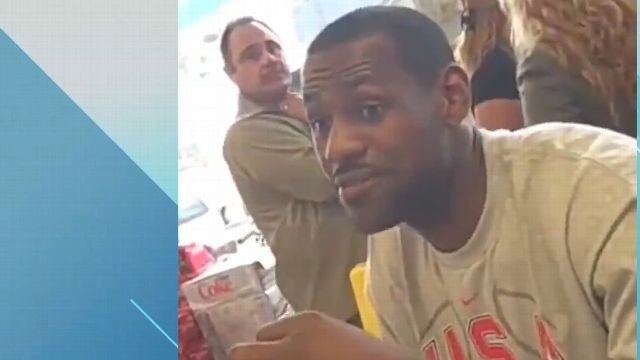
Kobe`s Leadership: Shaping a Dynasty
DURING THE 2008 gold medal game in Beijing, the highly experienced Spanish team narrowed the lead to just two points against the Americans in the fourth quarter, prompting Coach Krzyzewski to call a timeout.
The legendary coach later recounted that despite the countless NBA championship rings, college titles, MVP awards, and hundreds of millions in net worth present in that huddle, he believed it was likely the most intense moment they had all collectively experienced in their careers. Krzyzewski had prepared remarks, but it was Bryant who seized control of the moment.
“There`s plenty of players out here who are nervous,” Bryant calmly stated in the documentary about the situation. “I know they`re feeling the pressure much more than I am. I know I`m ready.”
Bryant`s subsequent minutes on the court are etched into the record books. This display of leadership will forever command the appreciation of everyone associated with the program. Yet, while it may have been the most memorable, it might not have been the single most defining moment.
Equally impactful was Bryant`s action during pool play against Spain earlier in the Olympics. He stunned his teammates by announcing in the locker room before the game that he knew Spain`s opening play and intended to deliberately barrel over his friend and Los Angeles Lakers teammate Pau Gasol. His goal was to send an unmistakable message about his unwavering sincerity in this entire endeavor. True to his word, he did just that, dropping a stunned Gasol to the hardwood with a fierce scowl mere seconds after tipoff.
However, Bryant`s profound leadership campaign truly commenced the summer prior, when the Americans were compelled to win the FIBA AmeriCup event to secure their Olympic bid.
Bryant`s example remains legendary within USA Basketball, personified during the pre-tournament training camp: Bryant made certain he was in the hotel lobby when his teammates returned from late-night Vegas nightclub outings, ensuring they saw him heading to the gym for a pre-dawn workout.
It was during this critical period that James, eager to elevate his leadership following his first taste of the NBA Finals months earlier, began to meticulously study Bryant`s habits and style up close. James later credited this experience with helping him discover his own voice and work ethic as a leader, a characteristic that continues to benefit USA Basketball in the modern era. Soon, James began joining Bryant in those early workouts, and other teammates followed suit.
James was a key leader of the 2024 Team USA that secured a fifth consecutive Olympic gold in Paris, 16 years after the streak began. During that campaign, James set a tone of dead seriousness and intense focus during the Las Vegas training camp. In many ways, this approach can be directly traced back to Bryant`s foundational influence in 2007.
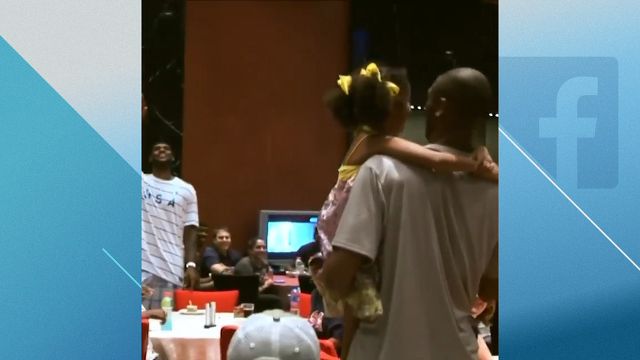
An Enduring Legacy of Gold
CARMELO ANTHONY AND DWIGHT HOWARD are double honorees in Springfield this week, being recognized for their illustrious playing careers as well as for their integral roles in securing the Beijing gold. They become the fifth and sixth members of the 2008 team to be inducted into the Hall for their individual careers, joining esteemed teammates Bryant, Jason Kidd, Wade, and Bosh.
LeBron James and Chris Paul, both remarkably still active in the NBA past the age of 40, are making history as the first active NBA players to be inducted into the Hall of Fame.
Coach Krzyzewski and Jerry Colangelo have already been honored for their contributions, as has Redeem Team assistant coach Jim Boeheim, who after their collective three Olympic golds and two World Cup golds, eventually convinced Krzyzewski to incorporate a significant amount of zone defense into Duke`s strategies.
In summation, the Redeem Team is already one of the most decorated in basketball history—though the unparalleled 1992 Dream Team, with its 11 Hall of Famers, remains unimpeachable.
Its profound role in basketball history is unequivocally secure, with its influence evident in the gold medals won in London (2012), Rio (2016), Tokyo (2021), and again last year in Paris. While such a consistent string of victories over many years can sometimes dilute the appreciation when viewed in aggregate,
this current celebration aims to ensure the Redeem Team`s unique significance is properly acknowledged. The reasons for its indelible mark, however, began long before and extended far beyond just the year 2008.
“When the gold medals were distributed in Beijing, `The Star-Spangled Banner` being played, the flag being raised, it was a moment of total completion,” Colangelo reflected when the Hall of Fame honor was announced earlier this year.
“Very seldom does someone have an opportunity to have a game plan, watch it perfectly executed and get the desired result. That`s what happened and it put our USA Basketball team on a course over the last 20 years to a lot of gold medals.”

